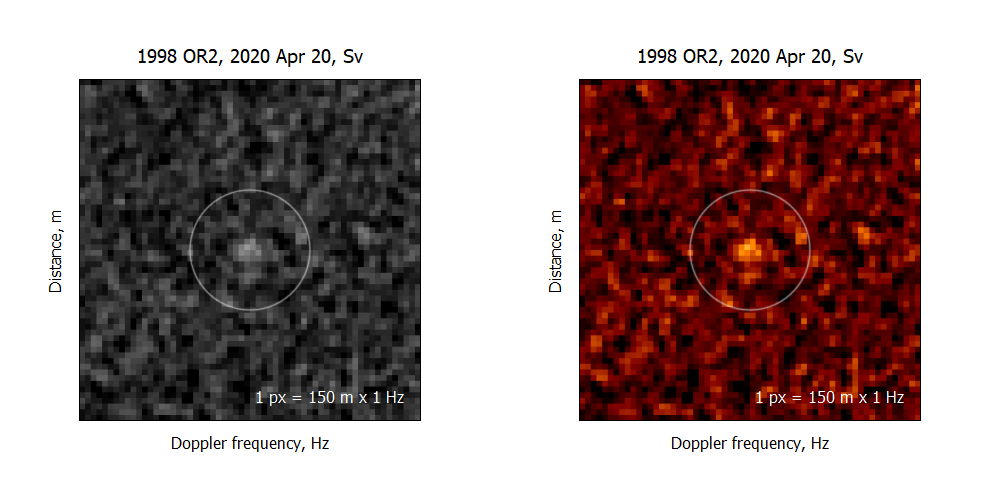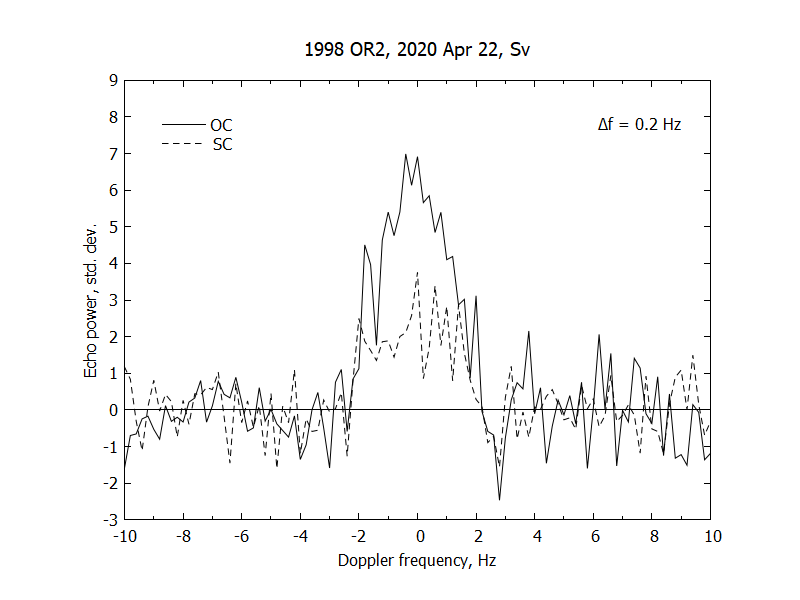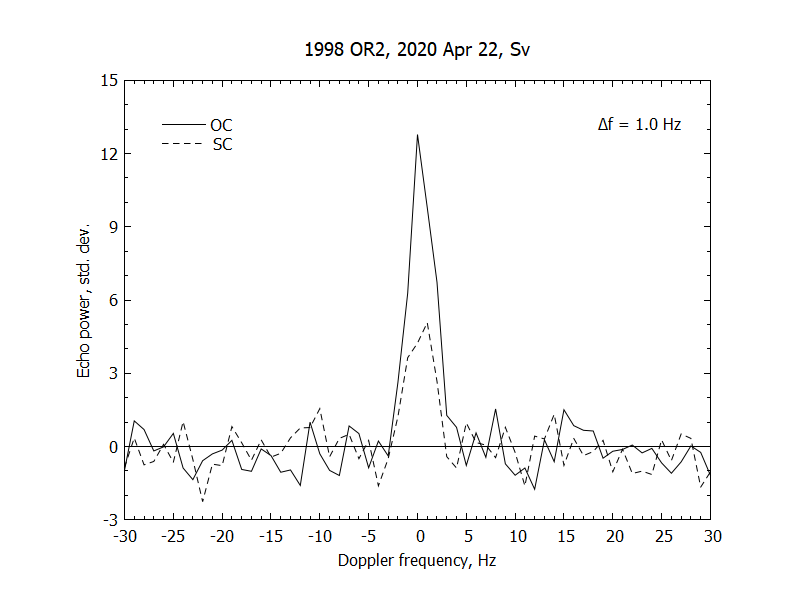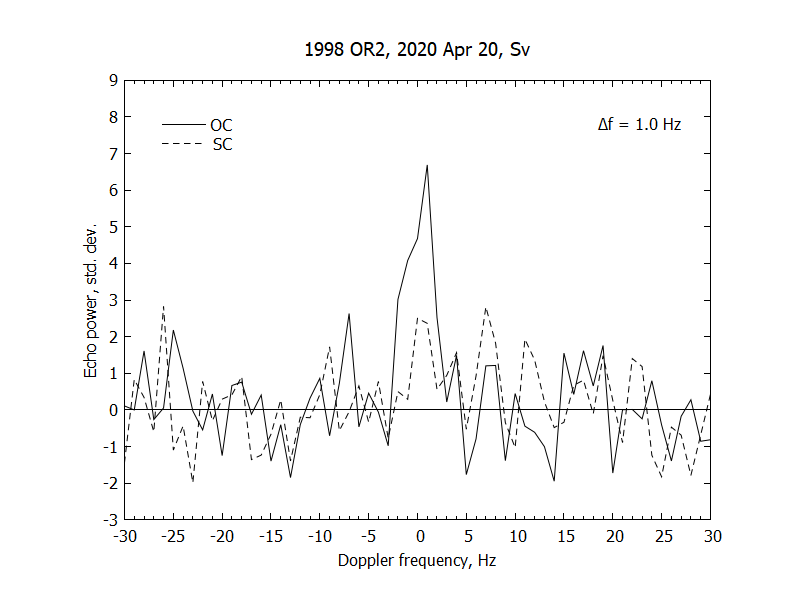1998 OR2
Discovered on July 24, 1998 by NASA's Near-Earth Asteroid Tracking (NEAT) program on Haleakala, Hawaii. Included in the list of the "Potentially Hazardous Asteroids" of the Minor Planet Center.
Orbital and Physical Characteristics
| Epoch | 2020 May 31 |
| Mean Anomaly | 12.10139° |
| Argument of Perihelion | 174.56624° |
| Longitude of Ascending Node | 27.01542° |
| Inclination | 5.86588° |
| Eccentricity | 0.5730840 |
| Semimajor Axis | 2.3844355 AU |
| Orbital Period | 3.68 years |
MOID |
0.0154377 AU |
| Orbit type | Amor |
| Absolute Magnitude | 15.8 |
| Diameter | ~2060 m |
| Rotation period | 4.112 h [1] |
Radar scattering properties
SC/OC |
0.38 [2] |
| Radar albedo | 0.11 [2] |
Close Approach to the Earth
| Date of encounter | 2020 Apr 29 |
| Distance | 0.0420 AU (16.4 lunar distances) |
Observation Schedule
| Date | Window, UT | Receiver |
Transmitter |
Frequency, MHz |
λ, cm |
Ptx, kW |
R, au |
RTT, sec |
SNR/RTT |
|---|---|---|---|---|---|---|---|---|---|
| 2020 Apr 19 | 22:09 - 23:50 | RT-32 (Sv) | Arecibo [3] | 2380.0 | 12.6 | 350 | 0.063 | 63 | 3 |
| 22:09 - 22:30 | RT-32 (Zc) | ||||||||
| 2020 Apr 20 | 22:14 - 23:30 | RT-32 (Sv) | Arecibo [3] | 2380.0 | 12.6 | 350 | 0.060 | 59 | 4 |
| 2020 Apr 21 | 22:21 - 23:15 | RT-32 (Sv) | Arecibo [3] | 2380.0 | 12.6 | 350 | 0.056 | 56 | 5 |
| 2020 Apr 22 | 22:33 - 22:58 | RT-32 (Sv) | Arecibo [3] | 2380.0 | 12.6 | 350 | 0.053 | 53 | 6 |
Range-Doppler radar images
Bistatic Arecibo/RT-32 range-Doppler radar images of 1998 OR2 obtained at Svetloe observatory on April 20, 2020 from 23:11 to 23:30 UT in "Gray" and "Hot" palettes. Range (distance from the observer) increases down at 150 m per pixel and Doppler frequency increases to the right at 1 Hz per pixel. The images have been scaled to the same spatial range. The images are normalized so that the noise has zero mean and unit standard deviation.

Echo power spectrum
Bistatic Arecibo/RT-32 continuous wave echo power spectra of 1998 OR2 obtained at Svetloe observatory on April 22, 2020 from 22:33 to 22:58 UT and on April 20, 2020 from 22:53 to 23:08 UT. Solid and dashed lines denote echo power in the opposite circular (OC) and same circular (SC) polarizations as that of the transmitted wave.



Remarks
Warner, B.D. et al., 2009.
We thank P. A. Taylor, A. K. Virkki, S. E. Marshall, F. Venditti and the technical staff at Arecibo for the help with the radar observations.